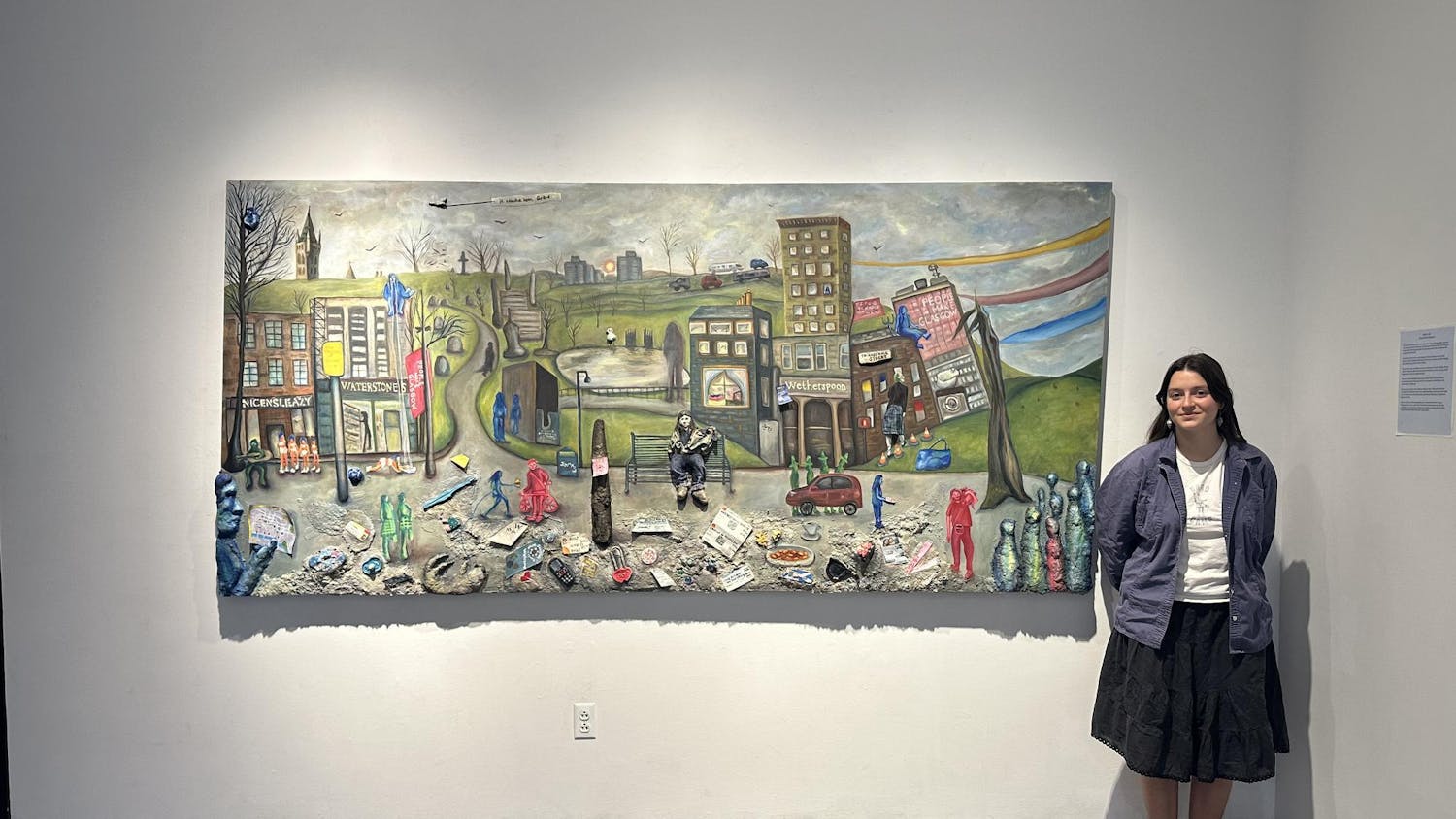You start at the bottom of a staircase, with little to no idea of what awaits you. A masked actress descends and leads you back up. You go through a door into a room that — if you are familiar with Production Workshop's upspace — you thought you knew.
But it's different. It's empty of seats and an audience. There's only the cast, milling about the room, and you.
The first few minutes of "Stand and Unfold Yourself," an "interactive meditation on ‘Hamlet'" are a more disorienting experience than a theatergoer may be accustomed to. There is only one audience member — perhaps audience is not even the right term. Rather, the observer takes on the role of Hamlet's confidante and follows him through the events of the play.
The play is "Hamlet," reduced to an hour. Gone are any scenes in which Hamlet does not appear — no long-winded advice from Polonius and no conspiring between Claudius and Laertes. The story is certainly recognizable, but some knowledge of the original script is important to fully understand the events that unfold.
The show runs Feb. 21-26, with four performances each night. Audience members were selected through a lottery, determined at the beginning of February.
Only 24 members of the Brown and Rhode Island School of Design community will get the full experience. Others were able to attend dress rehearsals or watch from the light booth.
After seeing the show, the reasoning behind this set-up becomes clear. The events of the play seem much more personal and relatable when narrated directly.
It is an experience difficult to find outside of a college campus. This sort of show is "financially impossible" in a commercial market, said Doug Eacho '11, the play's director.
It also gives the lead character a unique relationship with his audience. Following Hamlet through the course of his anger, guilt, reluctance and determination makes it easier to understand his decisions.
"There's a way in which Hamlet relates to the audience which is very rare in Shakespeare or in any play," Eacho said. "He treats them like confidantes."
"He's trying to explain to you what he's doing, but he's not very good at it," he added. "When you have him speaking to a house of 5,000 people, you lose that feeling."
This relationship deepens in the course of 50 minutes. At first, the observer's discomfort is assumed.
"Hamlet's central experience is one of isolation, the feeling of being absolutely disconnected from the people in his world and the physical world altogether," Eacho said. "Plopping someone by themselves into a theatrical space … tries to double that experience."
The goal "is not to alienate the audience member but to find a confidante and a co-conspirator," said Sam Yambrovich '12, who plays Hamlet in half of the performances.
But the observer is supposed to become more involved over the course of the play. "I've found that the more receptive the audience member is to me, the better I can perform," said Conor Kane '14, who plays Hamlet in the other half of the performances.
This play intensifies the notion that the quality of the audience can make or break a show. "If you, the audience member, don't comply, the action stops," Yambrovich said.
Naturally, the actors' performances in such a show are completely out of the ordinary. Hamlet, in particular, is talking to a friend — not a packed theater — and so the actor's performance is duly subdued.
The other characters mostly ignore the observer, going about their business as usual. But their performance style is still unique. There is no fourth wall, no cheating out to incorporate the audience. Stage whispers are replaced by actual whispers, and it is up to the audience member to listen in or not.
"Stand and Unfold Yourself" was funded by a PW Alumni New Works grant.
"I argued that this counted as new work," Eacho said.
In the sense that the words are the same, it is old, well-worn Shakespeare. But as far as bringing new meaning to characters' actions and re-imagining the role of actors and audience in the theatre, this show is truly novel.




